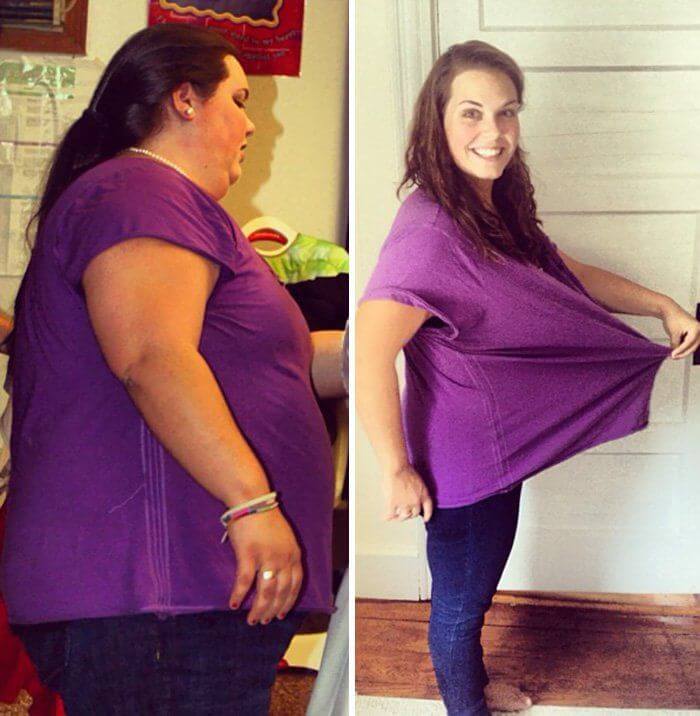
"A kind of punishment": what is the Karl Lagerfeld diet
The image of the famous designer Karl Lagerfeld is familiar even to those who are far from the fashion world: long snow-white hair gathered in a ponytail, sunglasses, a white shirt and a black suit. We remember him as a slender man, but few people know that this was not always the case: in the 1990s, the couturier struggled with excess weight. Thanks to a diet specially developed for him, Lagerfeld lost 40 kilograms in just 13 months. How did he do it? Let's figure it out.
The fashion designer's relatives believed that the reason for the designer's weight loss was a simple desire to follow new fashion trends and wear things that Lagerfeld himself created. "There is nothing worse than looking longingly at clothes that you would like to wear, but which are definitely too tight for you," the fashion designer wrote. He believed that the main incentive for losing weight is not only physical health, but also the aesthetic desire of a person to look attractive, because, according to Lagerfeld, fashion is "the healthiest motivation." Enviable directness, wouldn't you agree? No "I'm doing this for myself."
The author of the miracle diet was a French nutritionist, psychiatrist, writer and lecturer at the Faculty of Medicine at the University of Paris, Jean-Claude Udre. He developed the Spoonlight technique ("light spoon"), which he now uses in working with overweight people. The doctor has compiled a personal diet for the fashion designer. Karl Lagerfeld's 3D diet and his rapid weight loss were so noted in the fashion community that in 2005 Udre published a book with the same name, selling it in a circulation of more than 200 thousand copies (it was also published in Russian). The doctor is convinced that the main thing is to really want to lose weight and treat the process not as a test, but as an exciting game with a positive result.
The legendary designer began his journey to a slim and healthy body with the fact that he decided to lose 20 kilograms, following the recommendations of Jean-Claude. The nutritionist made a clear schedule: breakfast at 8 am, lunch at 13:00, dinner at 20:00. After that, he went to the couturier's chefs and gave the necessary instructions. At the same time, Lagerfeld did not actively engage in sports, but only occasionally conducted short high-intensity workouts three times a week.
What is Dr. Udre's diet
The main emphasis in the diet is on protein and vegetable dishes, and fats are completely limited, especially at the initial stages. You will have to give up sweets, because the diet does not include simple carbohydrates (sugar and flour). Udre also recommends blacklisting alcohol, meat and giving preference to fish.
In the list of allowed products for Lagerfeld, there was diet coke (the designer's favorite drink, he drank up to ten glasses a day), seafood, fruits (except bananas, cherries and grapes) and dairy products with a low percentage of fat content are also allowed.
Meals should consist exclusively of three meals, without snacks. And if you really want to eat between these three receptions? Then the nutritionist recommends supplementing the diet with proteins. In addition, Udre believes that dietary supplements are a great way to supplement the diet with essential vitamins and minerals, speed up metabolism and stimulate the intestines. The nutritionist suggests solving the problem with the lack of fats in the diet by using vegetable products and oils.
Three steps and a diet menu
The first phase is the most important, it lasts up to two weeks and consists in limiting the daily calorie intake to a minimum (800-900 calories). This, according to the Udre method, allows you to start the fat burning process and reduce the size of the stomach. The menu consists of vegetables and protein shakes, the use of fats is limited. At this stage, the body is completely rebuilt, so weight loss occurs the fastest.
The second stage is less strict. You can add real protein (meat, fish and dairy products) to your diet to keep as much muscle mass as possible while losing weight. You can also reduce the control of calorie deficit, but do not get too carried away: their daily amount should not exceed 1000-1200.
The last, the third phase, is the most nutritious. Here the daily diet is more diverse and it is easier to get those substances that are necessary for the body. The daily calorie intake is reasonable, although it is still not the norm: from 1200 to 1600 calories daily. Kilograms go away twice as slowly as at the first stage, but it is assumed that weight loss continues even with a larger number of permissible calories per day.
"To stick to this diet, you need a sense of humor. Don't take things too seriously, laugh at yourself, admit to yourself why and why you are doing this. It's a physical thing, that's all. There's no point pretending it's something else," here's Carl's weight loss advice.
What the experts say
Jean-Claude Udre states that Lagerfeld's weight loss method is based on the principles of healthy eating, but not everything is so clear, because even the most effective diet can be harmful to health. Nutritionist Angelika Pogrebak, a member of the Association of Educational and Functional Medicine, the creator of the online preventive medicine service "5P Medicine", believes that Karl Lagerfeld's diet did not suit him, given the rhythm of life in which the fashion designer lived and worked.
From the expert's point of view, a large calorie deficit entails irreversible processes and affects the general state of health, and we cannot call a diet without fats balanced, they are indispensable in the diet, as are proteins. The main thing is that the fats are correct: vegetable oils of high quality, cold pressed. For cooking, it is better to use oils with a high gorenje point.
Pogrebak says that yes, a protein shake or a bar can replace a full meal and a snack, but quality composition is important here. But herbal supplements only support and stimulate the work of enzymes, but they will not be able to give the necessary saturation. The specialist reminds that any recommendations on nutrition are made strictly individually, depending on a lot of factors: physical well-being, rhythm of life, physical exertion and quality of sleep.
Karl Lagerfeld's weight loss results are impressive, but just remember: he was constantly under the close attention of his nutritionist and part-time psychiatrist, who monitored not only the physical, but also the mental health of his patient. If you still want to lose weight, remember, beauty does not require sacrifices — consult a specialist.











